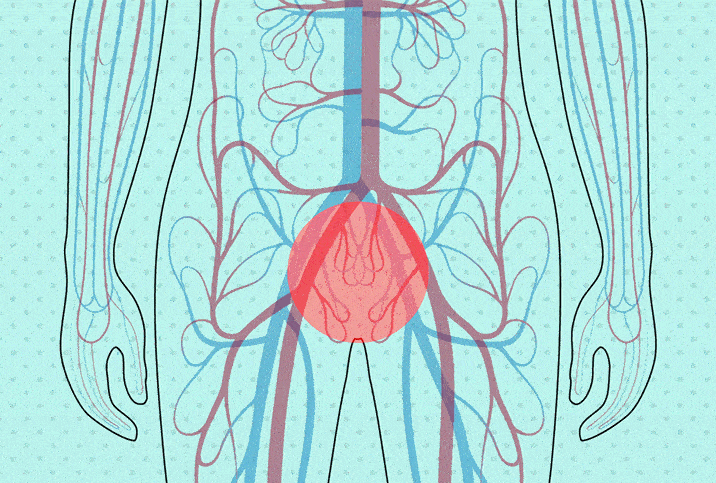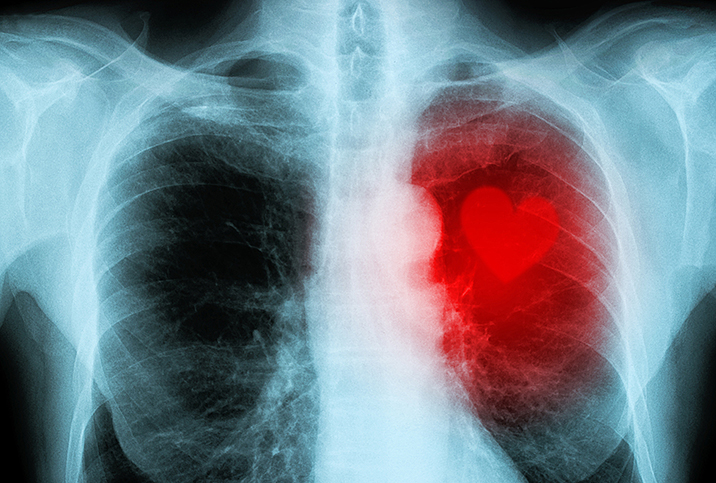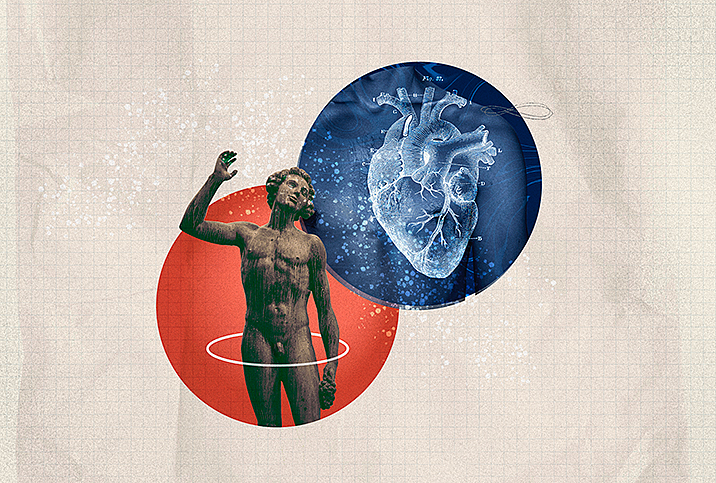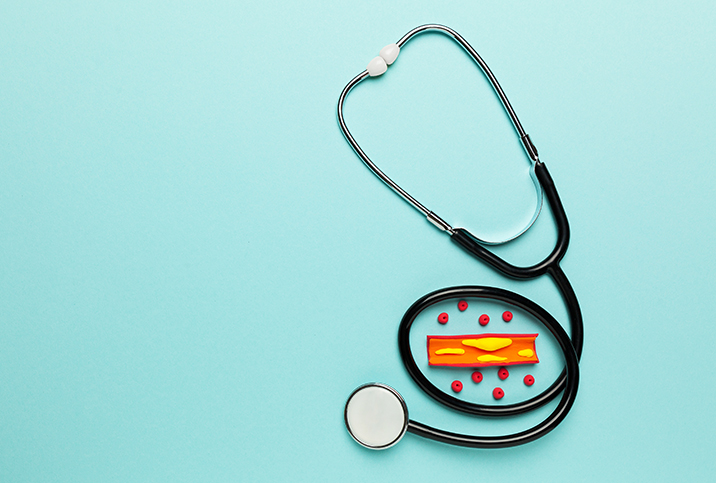Atherosclerosis Affects Blood Vessels—Including the Ones Down There

If you're not aware of the close link between quality erections and cardiovascular health, you should be. Forrest Gump might call them "peas and carrots."
"Sexual health is the 'check engine' sign when it comes to overall health," said Los Angeles-based urologist Justin Houman, M.D., of Tower Urology.
If a man's ticker—and the expansive network of vessels and pathways it supports—isn't working properly, the first sign of problems can appear in the penis. Most often, erectile dysfunction (ED) starts as another type of ED: endothelial dysfunction, or the inability of specific muscle cells lining the arteries to relax, which prevents vessel dilation and, thus, blood pressure control.
If not treated, endothelial dysfunction can progress to varying levels of artery blockage known as atherosclerosis. For worst cases, a man might find himself facing much more than basic erectile dysfunction. It's a "block party" no one wants.
Atherosclerosis and its effect on a man's health
Atherosclerosis isn't something that happens overnight but is rather the result of a decades long poor diet, a sedentary lifestyle and generally unhealthy habits.
All of these activities promote the accumulation of plaque in the arteries throughout the body, building up to the point where it can begin to block blood flow. In acute cases, a full blockage of an artery may cause a heart attack and require emergency bypass surgery to open the artery, but the telltale signs of the condition can show up years earlier.
"Erectile dysfunction can predate coronary artery disease [CAD] by up to three years," said T. Mike Hsieh, M.D., director of the Men's Health Center at University of California San Diego Health.
The blood vessels in the penis are among the smallest in the body, so they are often among the first to show signs of serious clogging related to a larger cardiovascular problem.
Atherosclerosis can affect more than just an erection
It's probably no surprise that poor cardiovascular health can be a gateway to a number of other potential problems. While both Hsieh and Houman noted that ED is the most prevalent symptom of atherosclerosis, the condition can also cause further issues.
A 2017 study published in Prostate International found an association between atherosclerosis and higher instances of nighttime urination—outside what was considered normal—along with various other lower urinary tract symptoms (LUTS).
Atherosclerosis and testosterone levels may share a role in broader sexual function issues as men age, according to a 2005 study published in the Journal of the American College of Cardiology. Normal testosterone levels may protect men from developing atherosclerosis and, therefore, promote healthier erections and a better sex life. Middle-aged men with symptoms of andropause and low-T had increased carotid artery intima-media thickness, a marker for atherosclerosis.
Houman added that men can experience decreased blood flow to the testicles as a symptom of atherosclerosis, which could mean infertility and hormonal problems if the testicles don't operate properly.
Hsieh noted there's ongoing research into how blocked blood flow affects the brain and cognitive function, which may lead to mood disorders that can also cause ED.
"Those blood vessels in the brain are even smaller than those in the penis," he said.
Treatment boils down to common sense
The main path to a healthier heart, and healthier erections, is through major lifestyle changes, such as eating better, exercising more and practicing better sleep hygiene.
There's no one diet that specifically prevents atherosclerosis, but it's always a great idea to get ahead of potential cardiovascular issues before they start affecting other parts of your body. Several studies have linked the Mediterranean diet—lots of fish, fruits, greens and beans; very little red meat, eggs and dairy—to better erectile function, and at least one study found long-term consumption of this diet was associated with decreased atherosclerosis progression.
When it comes to exercise, simple aerobic efforts such as walking yield beneficial cardiovascular results. The heart and the penis are intrinsically connected, so walking can help erections, too. You may want to add strength training and maybe even Kegels—check with your doctor, though, because Kegel exercises can be counterproductive for guys with certain prostate conditions, such as chronic pelvic pain syndrome (CPPS).
Put all of these elements together and you have a workout regimen that can help your heart and your sex life.
"If you catch [atherosclerosis] early, you're doing yourself a big favor," Houman said.


















